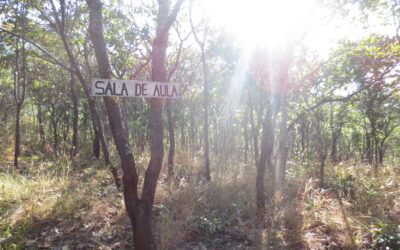Citizen science experts from across East Africa gathered in Nairobi for a pioneering symposium on 29 June – organised by the TBA in partnership with the Centre for Ecology & Hydrology (CEH).
The aim was to harness the growing interest and expertise in East Africa to stimulate new ideas and collaborations in citizen science.
Citizen science – which is all about engaging communities and individuals to collect useful data – has made exciting inroads in the continent, and the potential to benefit conservation is huge.
This was the first time that advocates of conservation citizen science from Africa and the UK had gathered to share experiences, to discuss tools and technologies, and to assess opportunities.
TBA Director, Rosie Trevelyan spelled out the challenge: “We need to enhance our knowledge about the status of Africa’s species and the threats facing them. And scientists can’t do it all on their own. At the same time, citizen science is an extremely effective way of connecting people more closely to nature and enrolling more people in conservation action.”
Eighteen speakers from 15 institutions presented case studies during the symposium, which was followed by a day of practical follow-up for a small group of delegates to identify priorities, discuss challenges and explore how the citizen science could move forward in the region.
The symposium received an overwhelmingly positive response from the 57 delegates who came from 31 universities, research institutes, Government departments and NGOs across East Africa. They were conservation scientists who are already using citizen science to collect data for research and conservation action, or those developing tools for citizen science.
For Elisha Pallangyo from the Tanzania Forest Conservation Group, the meeting was an eye-opener:
This will really shape the way that I think and implement citizen science projects back home.
he said.
Another delegate, Bernard Kissui, said that the term “citizen science” was still a new concept in Tanzania, but that the symposium had helped him to appreciate the nature and scope of involving people in data collection: “Until now, I didn’t realise that much of what I have been doing actually fits well into the fast growing area of citizen science research.”
John Bett, who works for WWF in Kenya said: “This symposium has filled a gap we have been struggling to fill for three years, and this one day has changed the whole landscape. What I have gained has the potential to have a huge impact not just where I work but elsewhere.”
The programme was put together by the TBA, and the symposium was funded by the British Ecological Society. It is a partnership which brings together vital elements for successful development: the TBA has an unrivalled network of African conservationists following more than two decades of building conservation capacity on the ground; the CEH is a world leader in promoting best practice in citizen science.
The symposium was funded by the British Ecological Society and was hosted by the National Museums of Kenya




